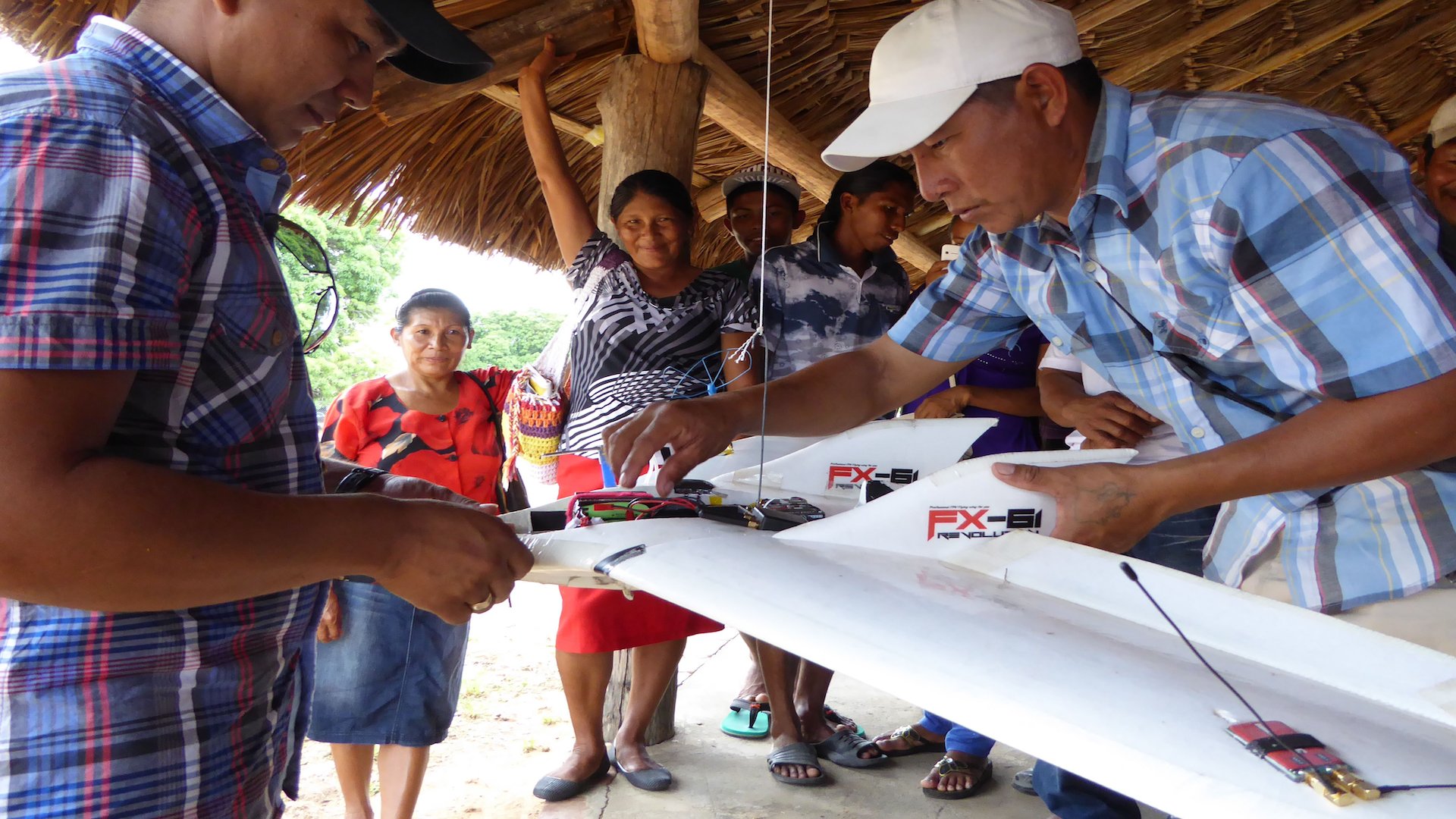

In the grasslands of southern Guyana, one of South America’s most corrupt countries, the Wapichan tribe is fighting illegal logging with drones to document for a court battle—with the help of California’s Digital Democracy, who supplied the materials to build the drone, and a camera donated by GoPro. Surveillance via drones is the Wapichan’s primary strategy.
Guyana’s ecosystem is part of the second largest rainforest area in the world. Corporate logging has long been a problem. And while drones have been used to protect private property or safeguard against potential acts of terrorism before, this is one of the first significant moment where drones are being used to prevent environmental damage.
The Wapachi’s efforts began in 2003, and evolved quickly when they started watching DIY videos on YouTube on how to build drones.
Materials are scarce in Guyana, and to build a functioning prototype, according to Quartz, “they used bowstrings to tie parts together and a lollipop stick as an impromptu drill.”,The camera, programmed to take a photo every other second, allowed the Wapichan tribe to digitally stitch the images together, post-flight, to create a map of potentially incriminating areas, using freely available “Mission Planner” software. They named the drone Kowada, or Osprey, and continued to improve its reliability by hunting for parts and materials in the nearby South Rupununi area.
Nicholas Fredericks, a representative of the region and local community leader of sorts, says, “With the drones, we can go into really inaccessible areas” to catch those responsible for illegal logging and land impingements in the act. What they found was startling: Trees were being logged in Guyana’s southern region, in areas that had long ago been decreed as protected land; a gold mine was seeping pollution into the nearby water supply that the Wapichan uses regularly.
“We are hoping to get them to recognize that these maps will actually help the government to resolve issues,“ Fredericks adds. “Without our lands, our futures are in jeopardy.” Thanks to him, this issue was given the attention it deserves, as he was invited to Paris in order to accept the “Equator Prize” by the UN Development Programme, which focuses on environmental struggles faced by native populations around the world. In his speech, Fredericks urged, “Our traditional practices are sustainable. We now need governments to recognize this, too.”

And though the battle-cry uttered on stage that day when Fredericks said, “We are the guardians of the forest…We will not stand for (its) destruction in the name of development”, is warranted and honorable, the governmental and corporate situation in Guyana is a powerful adversary for these local protectors. As new mines are opened and more forest areas are logged in the country, it is inspirational acts such as these – with the fortunate assistance of drone technology – that provides for a semblance of hope.